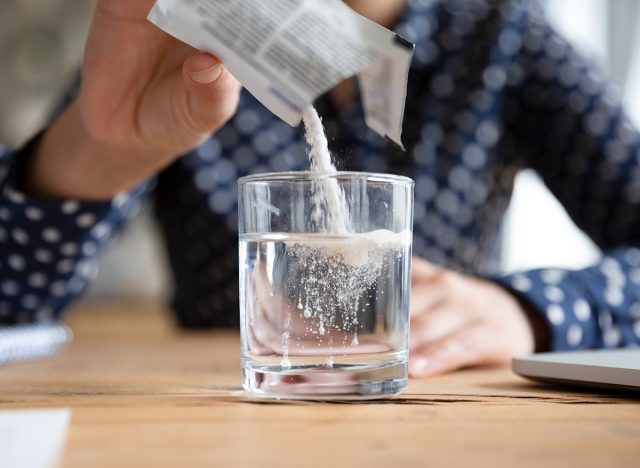The #1 Best Drinking Habit For Your Heart, Says New Study

Your heart is a vital organ. It pumps blood throughout the rest of your body through your arteries and veins. making it an essential part of life. Blood contains nutrients, such as oxygen, that the body's tissues need in order to do their jobs, so it's important the heart does its job correctly. With how important this organ is, it's also easily susceptible to heart disease and heart failure.
With that being said, you want to make sure your heart is at its healthiest, and you can do that in several ways. Through eating certain foods, exercise, and even methods of self-care, you have many options when it comes to protecting your heart from problems. Drinking certain beverages is also beneficial for your heart. In fact, there's one drinking habit in particular that helps your heart.
According to a study done by National Heart, Lung, and Blood Institute, the best drinking habit for your heart is good hydration.
The research showed that staying well-hydrated may be associated with a reduced risk of developing heart failure. The new discovery also suggests that drinking a sufficient amount of fluids throughout your life not only supports essential body functioning, but may also reduce the risk of severe heart problems in the future.
According to lead author Natalia Dmitrieva, PhD, staying well hydrated is similar to reducing salt intake in the sense that they both support your heart and help reduce long-term risks for heart disease.

In the study, preclinical research was conducted and suggested a connection between dehydration and cardiac fibrosis–a hardening of the heart muscles. Dmitrieva as well as other researchers looked for similar associations in large-scale population studies. To start, they analyzed data from more than 15,000 adults between the ages of 45 and 66, who enrolled in the Atherosclerosis Risk in Communities (ARIC) study between 1987 and1989. They shared this data from medical visits over a 25-year period.
From this information, the authors concluded blood sodium levels were above 142 milliequivalents per liter (mEq/L) in middle age are associated with increased risks of developing left ventricular hypertrophy–a thickening of the wall of the heart's main pumping chamber–and heart failure later in life.
Although the researchers said a randomized, controlled trial will be needed in order to confirm these preliminary findings, these early associations suggest good hydration may help prevent or slow the progression of changes within the heart that can lead to heart failure.
For more information on ways to protect your heart health, check out These Drinking Habits Are Wrecking Your Heart Health, Cardiologist Says








